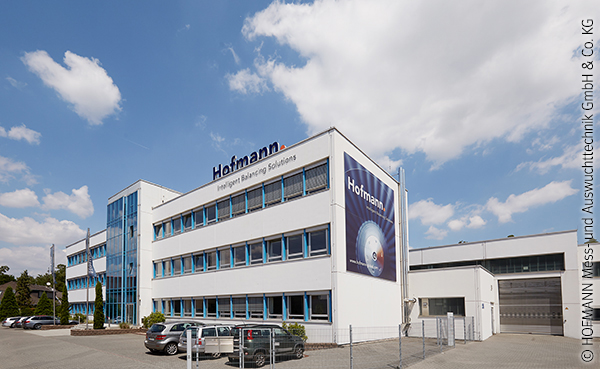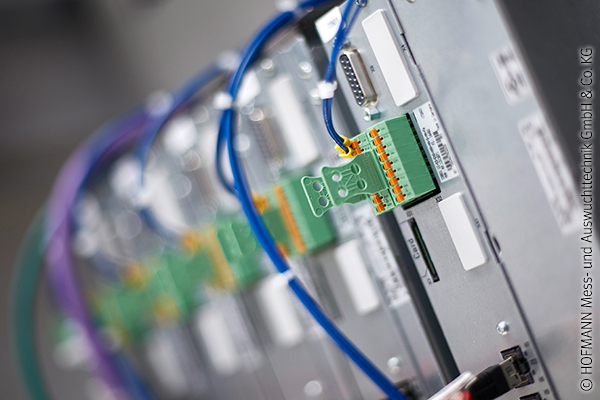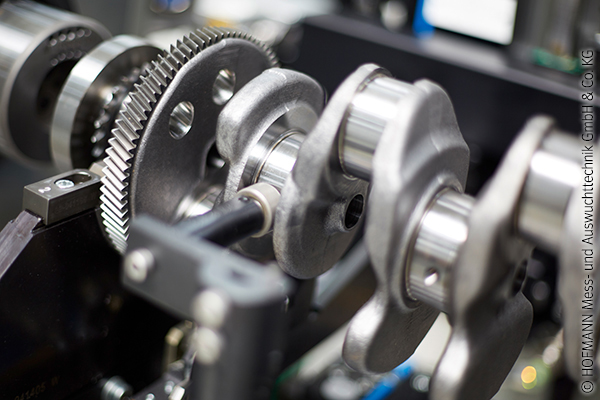
|
Industry 4.0 Workshop – Creative Space for InnovationBy Mario Leber Many mid-sized companies do not have a clear idea of how Industry 4.0 will impact their business processes and models. Hofmann Mess- und Auswuchttechnik performed an Industry 4.0 assessment with the help of PROSTEP to increase their employees’ awareness of this topic. This not only resulted in new product ideas but also the realization that IT needs to be integrated more effectively in order to implement these innovations. 
Based in the German town of Pfungstadt, Hofmann Mess- und Auswuchttechnik GmbH & Co. KG is a leading specialist for balancing brake disks, crankshaft bearings, fans, and other rotating components used in automobiles, airplanes, and various machines. The mid-sized company looks back on a rich corporate history. Founded 85 years ago as Maschinenfabrik Gebr. Hofmann KG, the group, which at times had 3,000 employees, was acquired by the Wegmann Group in 1980. In the early 1990s, Wegmann sold a substantial portion of the company, and the Industrial Balancing Machinery business unit filed for insolvency two years after a management buyout. In 1996, Dionys Hofmann re-established the company with a clear focus on custom specific machinery. “Meanwhile others had to downsizing, we started with a lean structure and focused on the development, construction, and assembly of customer-specific measuring and balancing machines from the very start,” explains Managing Director Georg Fischer. “We do not manufacture anymore.” The Hofmann company has experienced dynamic growth in recent years and presently employs 150 staff at the Pfungstadt site. Together with the American Hofmann affiliate, the holding, which is owned by a fund, generates an annual turnover of 40 million euros with its 250 employees. Key customers include major automotive companies, such as Daimler and Volkswagen, and prestigious first- and second-tier automotive suppliers. One reason behind Hofmann’s success is the consistent modular approach the company applied to their special-purpose machines. The units used for measuring, rotation, or material removal via milling are built into a wide range of different machines. This means that the individual modules can be produced in larger quantities, which, in turn, results in lower costs as well as significantly faster delivery times. “Speed is important, but reliability is also a key challenge,” says Fischer. “Our customers need to be able to fully rely on our machines, because you can’t identify an unbalanced part by just looking at it.” 
Hofmann’s special-purpose machines already contain intelligent measuring computers that transfer balancing results and other data to the central production system. Despite this modern feature, Fischer devoted a lot of time to Industry 4.0 and to think about what future demands his customers might have regarding machine connectivity and new services. He also considered the impact this would have on internal processes and on his employees. An initial consultation meeting with Dr. Dietmar Trippner of dreiconsult GmbH brought, among other insights, the realization that major car manufacturers will soon require a digital twin of their machines so they can integrate it into their virtual production lines for the purpose of running simulations. Hofmann has been constructing in 3D for a long time, but the company was previously unaware of the upcoming challenges related to digitization. “Industry 4.0 covers a lot of ground,” states Fischer, continuing, “but what matters to us first and foremost is the digitization of product and production processes.” In order to gain a better insight in how well the company supports Industry 4.0 and to raise awareness for this topic among his staff, he performed an Industry 4.0 assessment in cooperation with Professor Reiner Anderl from TU Darmstadt and PROSTEP. As part of the project, the development and production processes as well as the existing IT system landscape were analyzed to ascertain their Industry 4.0-capability in the respective areas. In the next step, a roadmap for key measures was drawn up based on the findings. Affordable consulting and IT can rarely be found for SMBs, laments Fischer. “It is also quite challenging for a mid-sized company like us to manage the technical and specialist aspects of the IT systems and make the right decisions. This is why we will integrate American Hofmann with the help of PROSTEP.” The company is planning to implement a common IT landscape across the entire group and connect the U.S. subsidiary to the German servers via fast data lines. This will allow all employees to work with the same systems. The analysis of the current situation showed that the biggest obstacle to digitization at Hofmann is their heterogeneous IT landscape, which contains various data silos that are not adequately interconnected. While the engineers based in Pfungstadt and at American Hofmann use the same CAD system (SolidEdge), they do not have a shared data pool, which makes it difficult to exchange data. The Pfungstadt site introduced a PDM system in 2012, but American Hofmann still uses a file-based approach to manage their CAD data. At present, the RuleDesigner software is being rolled out to introduce a common PDM tool across the group. The key driver behind this change of systems is that the interface connecting the existing PDM system and the new Softbauware ERP system – a solution specifically for special-purpose machinery companies – was projected to cost several tens of thousands of euros alone. Many Ideas for New Product Innovations A core component of the assessment consisted of a brainstorming workshop, which invited employees to contribute their ideas for product and process improvements. “We involved as many people from different departments as possible to enrich and inspire the discussion,” says Fischer. During this session, the developers had many ideas as to how additional sensors and measuring technology integrated into the machines could make them intelligent enough to perform self-monitoring tasks and alert production managers to the imminent failure of a wear part or even order a replacement part autonomously. “Intelligent machines are a prerequisite for turning captured data into profits,” notes Fischer. “Now we need to decide on the new service models we want to offer our clients in the future.” 
The production planning team also had an interesting suggestion, which tackles the problem that assembly planning depends on determining which parts are on site for which machines at any given time. Around 100 packages delivered by dozens of suppliers arrive each day, and they often contain parts for various machines or orders. All parts need to be unwrapped and checked in manually before production planning can actually take place, unless planners call the suppliers to verify contents. Workshop participants voiced the idea of providing suppliers with barcode stickers that allow for automatic part identification following receipt. Alternatively, a supplier portal could be set up where suppliers would enter detailed package information after sending off a shipment. The assessment workshop made employees aware of the possibilities offered by connectivity and created a space for fostering innovative product and process ideas, emphasizes Fischer. Younger employees were especially enthusiastic about this project, not least thanks to their affinity for mobile devices. Following the workshop, for example, an employee quickly programmed a prototype app for remotely monitoring the new machines; while it does not yet meet security requirements, it demonstrates upcoming technologies to customers. The next step involves recording and implementing the various ideas. “The workshop was very worthwhile. I highly recommend it to any company that wants to prepare for the challenges posed by Industry 4.0. My experiences show that this will only work if companies get every single employee invested in the process,” summarizes Fischer. To this end, PROSTEP will soon hold another workshop to define the roadmap for digitizing materials management, procurement, and assembly processes. One major challenge along the way will be to implement small suppliers that only have basic IT capabilities, but which Hofmann is intent on keeping aboard. “They are what makes us so fast and flexible,” says Fischer in conclusion. 
|
|
| © PROSTEP AG | ALL RIGHTS RESERVED | IMPRESSUM | DATENSCHUTZERKLÄRUNG | HIER KÖNNEN SIE DEN NEWSLETTER ABBESTELLEN. |

